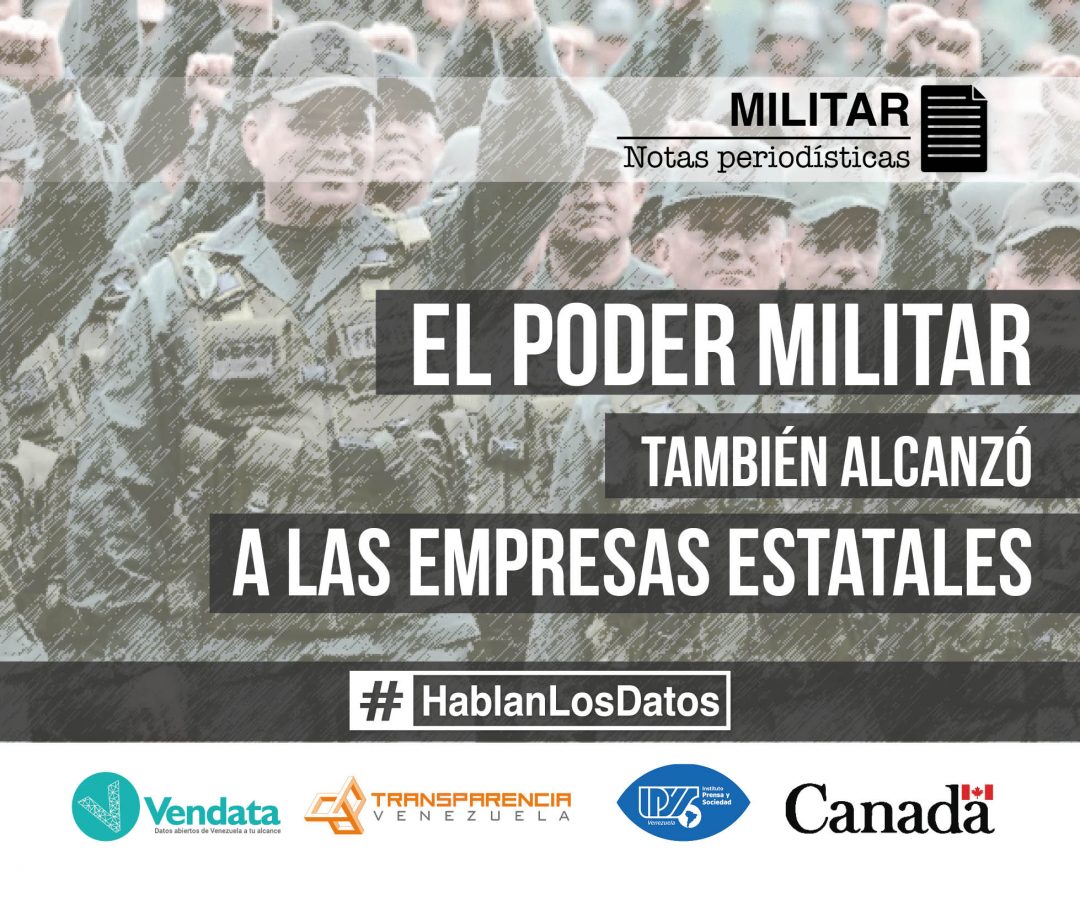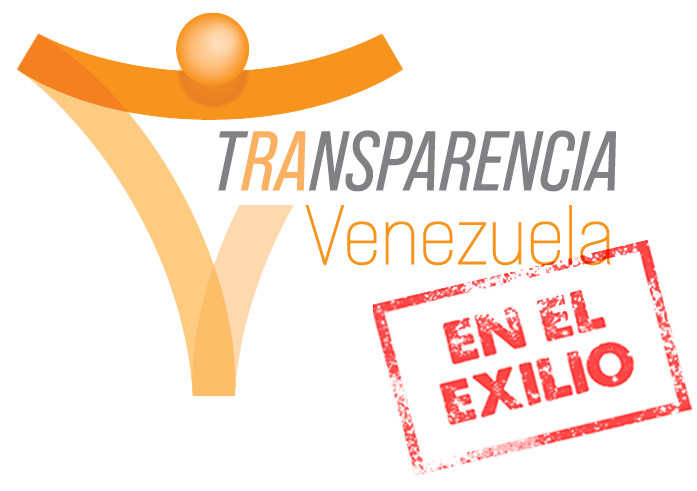The military power also reached the state enterprises

Transparencia Venezuela, 11 February 2018. During the government of Hugo Chavez and with more emphasis on Nicolas Maduro’s, the military power gained great relevance in Venezuela’s political and economic life by taking almost absolute control of key sectors for society.
In recent years, a group of active or retired military has assumed powers ranging from the vice-presidency and the ministry of the presidency, to ministries, embassies, governorships and mayorships. They have even become the top heads of state enterprises that have nothing to do with the military sector.
According to the investigation State-owned Enterprises: Phase II, that Transparencia Venezuela presented at the end of 2018, out of 576 state enterprises, at least 60 have a military as the highest authority.
The data of each one of the enterprises can be consulted in Vendata, the largest open data platform in the country, promoted in partnership with the Instituto Prensa y Sociedad de Venezuela (Venezuela’s Press and Society Institute, IPYS) and Transparencia Venezuela.
The information published in Vendata specifies that the enterprises led by the military belong to sectors of great importance for the Venezuelan economy and that, in addition, have received significant sums of money via the budget law and through additional credits, without this meaning greater efficiency.
The enterprises that have military personnel in the highest positions are in the hydrocarbons, food, construction, mining and metallurgy, banking, transport, communications and public services sectors, among others.
Inefficiency as a result
Among the state enterprises led by the military, the case of Petróleos de Venezuela, the country’s leading enterprise, stands out. Since November 2017, it is presided over by Major-General Manuel Quevedo, who simultaneously holds the position of energy minister.
The practice of designating the same person as regulator and operator has been a constant in the administrations of Hugo Chavez and Nicolas Maduro, which reveals a worrying lack of control and oversight.
The appointment of Quevedo at the forefront of Pdvsa and the ministry was strongly criticized by oil experts, who argue that he does not have the merit required to hold those positions. They say he is there because of his obedience and loyalty to the government.
Since he appointed Quevedo president of Pdvsa, Nicolás Maduro asked Quevedo to reverse the fall in oil production in the country, but to date only the opposite has happened. While in November 2017 the state enterprise produced 1.8 million barrels of oil per day, in December 2018 (latest available data) it produced only 1.5 million barrels per day, according to data sent by the Ministry of Energy to the Organization of the Petroleum Exporting Countries.
Another of the state enterprises that is presided over by a military is the Corporación Eléctrica Nacional (National Electric Corporation, Corpoelec) whose president is Major-General Luis Motta Dominguez, who is also minister of electric energy, despite not having academic training in the area.
Corpoelec has a monopoly on electricity service in Venezuela and in recent years has been the focus of many public denunciations of corruption, because the sector was allocated billions and yet still it works worse day by day. Venezuelans have died in hospital emergencies due to lack of light, and food and medicine have been lost as a result of constant blackouts.
The food sector is one of those that has suffered the most from the presence of military personnel without training in the area, as evidenced by the State-owned Enterprises: Phase II investigation. The military participate from the distribution of supplies for plantings to the distribution and marketing of food.
In the information recorded in Vendata, the case of the Single Corporation of Productive and Food Services (Cuspal), responsible for receiving and distributing the food imported for the Local Committees for Supply and Production (CLAPs) the governmental program consisting of the sale of subsidized products and that has led to multiple corrupt practices with disastrous results for the safe and sovereign supply in the country.
Since November 2018, the president of Cuspal is Colonel Vianney Rojas Garcia, who previously served as deputy to the general director of the National Telecommunications Commission (Conatel) and as alternate director of the board of directors of the Bank of the National Bolivarian Armed Forces (Banfanb). Rojas replaced General Luis Medina Ramirez, current minister of food, in the Cuspal presidency.
The time to assess
Sharing power with a group of militaries has allowed Nicolas Maduro’s government to count on the support of the military sector even in moments of great political and social conflict.
Cada vez que tiene oportunidad, Maduro participa en actos con los militares y aplaude su trabajo. Desde el Ministerio de Defensa no han dudado en manifestarle lealtad, sin embargo, en lo que va de 2019 ha quedado en evidencia que en la columna castrense no todos piensan igual.
Every time he has a chance, Maduro participates in acts with the military and applauds their work. From the Ministry of Defense, they have not hesitated to show loyalty. However, so far in 2019, there has been evidence that in the military sector not all think alike.
Between January and the first half of February 2019, there have been statements by the military that say they do not recognize Maduro, who ask him to resign in the face of the deep crisis and allow the constitutional order to be restored.
